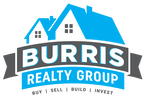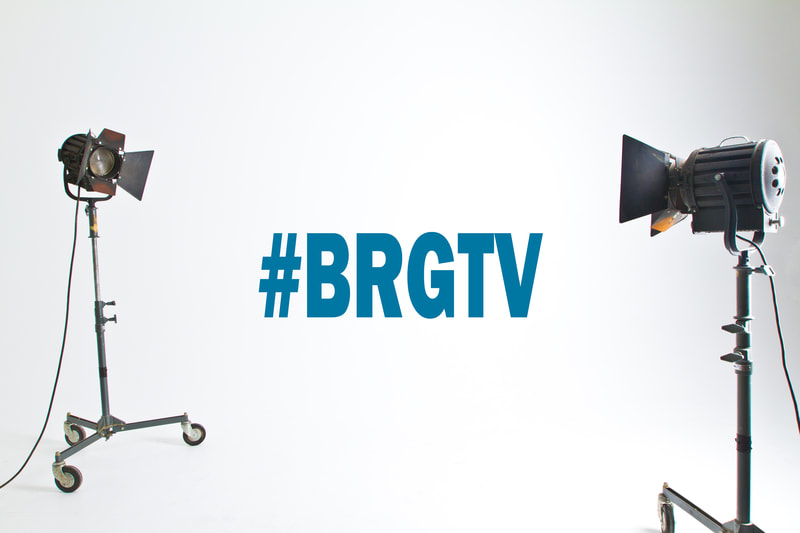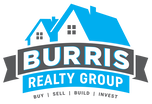Glossary of Commonly Used Real Estate Terms
Adjustable-Rate Mortgage
In an adjustable-rate mortgage, the interest rate can change over the course of the loan. Commonly in three, five, seven, or ten year intervals. For homeowners who plan to stay in their home for more than a few years, these loans can be a little riskier than a traditional fixed rate mortgage.
Appraisal
In order to get a loan from a bank to buy a home, you first need to get the home appraised so the bank can be sure they are lending the correct amount of money. The appraiser will determine an opinion of the value of the home based on an examination of the property itself, as well as the sale price of comparable homes in the area and the lender will use this to determine how much they are willing to lend on the property. Appraisals nowadays are ordered by the lender through 3rd parties commonly referred to as Appraisal Management Companies. If the home does not appraise for at least the sales price the buyers will only be able to obtain a mortgage in the amount it appraised for.
Assessed Value
This is how much a home is worth according to a public tax assessor who makes that determination in order to figure out how much city or state tax the owner owes.
Buyer’s agent/Selling Agent
This is the agent who represents the buyer in the home-buying process and whose fiduciary responsibilities are to the buyer alone. On the other side is the listing agent, who represents the seller.
Cash Reserves
The cash reserves is the money left over for the buyer after the down payment and the closing costs. Most lenders want to see at least a few months of cash reserves left in the borrower's account after closing in order to approve the loan.
Closing
The closing refers to the meeting that takes place where the sale of the property is finalized. At the closing, buyers and sellers sign the final documents, and the buyer makes the down payment and pays closing costs. In Indiana, these traditionally take place at title companies or in real estate offices.
Closing Costs
In addition to the final price of a home, there are also closing costs, which will typically make up about two to five percent of the purchase price, not including the down payment. Examples of closings costs include loan processing costs, title insurance, and homeowner's insurance premiums, escrow funds, title fees, appraisal costs, etc...
Comparative Market Analysis (CMA)
Comparative market analysis (CMA) is a report on comparable homes in the area that is used to derive an accurate value for the home in question.
Contingencies
This term refers to conditions that have to be met in order for the purchase of a home to be finalized. Common examples of contingencies in the real estate transaction are the sale being contingent upon home inspections, the ability of the loan to be final approved, or the sale is contingent upon the closing of the buyer's current home.
Dual Agency/Limited Agency
Dual agency is when one agent represents both sides, rather than having both a buyer’s agent and a listing agent. This is allowed in the state of Indiana with the proper disclosures.
Equity
In home ownership, equity refers to how much of your home you actually own—meaning how much of the principal you’ve paid off. Put another way, equity is the difference between the fair market value of the home and the unpaid balance of the mortgage. For example, if you have a $200,000 home, and you still owe $150,000 on it, you have $50,000 in equity.
Fixed-Rate Mortgage
In a fixed-rate mortgage, the interest rate stays the same throughout the life of the loan.
Home warranty
Home warranties are typically available on any property. They help protect the home owner against unexpected repair costs by providing limited coverage for most of the major mechanical systems of the home such as HVAC, appliances, electrical, and plumbing systems.
Inspection
Home inspections are highly recommended for any home purchase to help make sure the home the buyer is purchasing is safe to live in and has no major defects that weren't previously disclosed by the seller. Typically, they cost a few hundred dollars. Failing to do an inspection may result in surprise costly repairs down the road for the home buyer.
Listing
A listing is essentially a home that is for sale. The term gets its name from the fact that these homes are often “listed” on a website or in a publication.
Listing Agent
This is the agent who represents the seller in the home-buying process and therefore has fiduciary responsibilities to the seller.
Offer
This is the initial price offered by a prospective buyer to the seller. A seller may accept the offer, reject it, or counter with a different offer.
Pending
When a buyer has submitted an offer and the seller has accepted it.
Pre-Approval
Before buying a home, a buyer can obtain a pre-approval letter from a bank, which provides an estimate on how much the bank will lend that person and what mortgage program(s) they may qualify for. This letter will help determine what the buyer can afford and is often important to have to present to the seller with the offer so that the seller knows the buyer can afford the home.
Principal
The principal is the amount of money borrowed to purchase a home. Paying off the principal allows a buyer to build equity in a home. Principal is combined with interest to determine the monthly mortgage payment.
Private Mortgage Insurance (PMI)
An insurance premium that the buyer pays to the lender in order to protect the lender from default on a mortgage. You can expect to pay PMI on most loans where you are putting less than 20% down but there are a few exceptions to this rule.
Real Estate Agent
A real estate agent is a professional with a real estate license who works under a broker and assists both buyers and sellers with either purchasing or selling a property.
Real Estate Broker
A real estate broker is a real estate agent who has passed a state broker’s exam and met a few other state requirements. These brokers are able to work on their own or hire their own agents.
Realtor
A Realtor is a real estate agent who specifically is a member of the National Association of Realtors (NAR). NAR has an additional code of standards and ethics that members must adhere to that other Agents who are not members don't have.
Refinancing
Refinancing is when you restructure your home loan, replacing your old loan with an entirely new loan that has different rates and payment structures. There are many reasons people may refinance their mortgage. Some common examples are to lower their interest rate or take cash out of their homes equity to use for other projects or to payoff debt.
Title Insurance
Title insurance is often required as part of the closing costs especially if a loan is involved. It covers research into public records to ensure that the title is free and clear, and ready for sale. If you purchase a home and find out later that there are liens on the home, you’ll be glad you had title insurance to cover the costs for you.
In an adjustable-rate mortgage, the interest rate can change over the course of the loan. Commonly in three, five, seven, or ten year intervals. For homeowners who plan to stay in their home for more than a few years, these loans can be a little riskier than a traditional fixed rate mortgage.
Appraisal
In order to get a loan from a bank to buy a home, you first need to get the home appraised so the bank can be sure they are lending the correct amount of money. The appraiser will determine an opinion of the value of the home based on an examination of the property itself, as well as the sale price of comparable homes in the area and the lender will use this to determine how much they are willing to lend on the property. Appraisals nowadays are ordered by the lender through 3rd parties commonly referred to as Appraisal Management Companies. If the home does not appraise for at least the sales price the buyers will only be able to obtain a mortgage in the amount it appraised for.
Assessed Value
This is how much a home is worth according to a public tax assessor who makes that determination in order to figure out how much city or state tax the owner owes.
Buyer’s agent/Selling Agent
This is the agent who represents the buyer in the home-buying process and whose fiduciary responsibilities are to the buyer alone. On the other side is the listing agent, who represents the seller.
Cash Reserves
The cash reserves is the money left over for the buyer after the down payment and the closing costs. Most lenders want to see at least a few months of cash reserves left in the borrower's account after closing in order to approve the loan.
Closing
The closing refers to the meeting that takes place where the sale of the property is finalized. At the closing, buyers and sellers sign the final documents, and the buyer makes the down payment and pays closing costs. In Indiana, these traditionally take place at title companies or in real estate offices.
Closing Costs
In addition to the final price of a home, there are also closing costs, which will typically make up about two to five percent of the purchase price, not including the down payment. Examples of closings costs include loan processing costs, title insurance, and homeowner's insurance premiums, escrow funds, title fees, appraisal costs, etc...
Comparative Market Analysis (CMA)
Comparative market analysis (CMA) is a report on comparable homes in the area that is used to derive an accurate value for the home in question.
Contingencies
This term refers to conditions that have to be met in order for the purchase of a home to be finalized. Common examples of contingencies in the real estate transaction are the sale being contingent upon home inspections, the ability of the loan to be final approved, or the sale is contingent upon the closing of the buyer's current home.
Dual Agency/Limited Agency
Dual agency is when one agent represents both sides, rather than having both a buyer’s agent and a listing agent. This is allowed in the state of Indiana with the proper disclosures.
Equity
In home ownership, equity refers to how much of your home you actually own—meaning how much of the principal you’ve paid off. Put another way, equity is the difference between the fair market value of the home and the unpaid balance of the mortgage. For example, if you have a $200,000 home, and you still owe $150,000 on it, you have $50,000 in equity.
Fixed-Rate Mortgage
In a fixed-rate mortgage, the interest rate stays the same throughout the life of the loan.
Home warranty
Home warranties are typically available on any property. They help protect the home owner against unexpected repair costs by providing limited coverage for most of the major mechanical systems of the home such as HVAC, appliances, electrical, and plumbing systems.
Inspection
Home inspections are highly recommended for any home purchase to help make sure the home the buyer is purchasing is safe to live in and has no major defects that weren't previously disclosed by the seller. Typically, they cost a few hundred dollars. Failing to do an inspection may result in surprise costly repairs down the road for the home buyer.
Listing
A listing is essentially a home that is for sale. The term gets its name from the fact that these homes are often “listed” on a website or in a publication.
Listing Agent
This is the agent who represents the seller in the home-buying process and therefore has fiduciary responsibilities to the seller.
Offer
This is the initial price offered by a prospective buyer to the seller. A seller may accept the offer, reject it, or counter with a different offer.
Pending
When a buyer has submitted an offer and the seller has accepted it.
Pre-Approval
Before buying a home, a buyer can obtain a pre-approval letter from a bank, which provides an estimate on how much the bank will lend that person and what mortgage program(s) they may qualify for. This letter will help determine what the buyer can afford and is often important to have to present to the seller with the offer so that the seller knows the buyer can afford the home.
Principal
The principal is the amount of money borrowed to purchase a home. Paying off the principal allows a buyer to build equity in a home. Principal is combined with interest to determine the monthly mortgage payment.
Private Mortgage Insurance (PMI)
An insurance premium that the buyer pays to the lender in order to protect the lender from default on a mortgage. You can expect to pay PMI on most loans where you are putting less than 20% down but there are a few exceptions to this rule.
Real Estate Agent
A real estate agent is a professional with a real estate license who works under a broker and assists both buyers and sellers with either purchasing or selling a property.
Real Estate Broker
A real estate broker is a real estate agent who has passed a state broker’s exam and met a few other state requirements. These brokers are able to work on their own or hire their own agents.
Realtor
A Realtor is a real estate agent who specifically is a member of the National Association of Realtors (NAR). NAR has an additional code of standards and ethics that members must adhere to that other Agents who are not members don't have.
Refinancing
Refinancing is when you restructure your home loan, replacing your old loan with an entirely new loan that has different rates and payment structures. There are many reasons people may refinance their mortgage. Some common examples are to lower their interest rate or take cash out of their homes equity to use for other projects or to payoff debt.
Title Insurance
Title insurance is often required as part of the closing costs especially if a loan is involved. It covers research into public records to ensure that the title is free and clear, and ready for sale. If you purchase a home and find out later that there are liens on the home, you’ll be glad you had title insurance to cover the costs for you.





